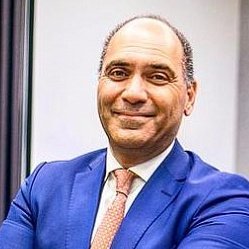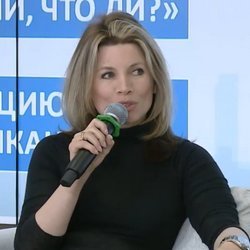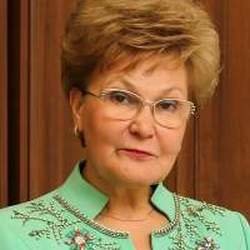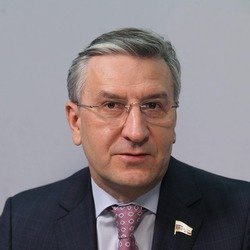‘Are Russians ready to vote for a female president?’
Why female deputies choose social issues and why Russian women unwillingly go into politics
Is there an especial attitude to women in politics or any difference between “female” and “male” bills? Is it necessary to increase the representation of female deputies in the State Duma? Do Russians want a female president to chair the country? Participants in another meeting of Volga expert club in Kazan looked for answers to these questions. Deputies, political campaign managers, experts of consultancies and communication agencies were invited to the discussion. Realnoe Vremya’s correspondent listened to opinions about how topical gender division in politics was for the country.
“Russia has always been and will long be patriarchal”
Though women prevail today among Russia’s population — they total 78,6 million, or 53,6%, while men do 68,1 million, or 46,4% — precisely representatives of men win elections. Moreover, the fair sex votes for them. At the same time, 73,2% of employees in regional administrations are women, but the number of male executives in power is twice higher. While hiring workers, they prefer women. As experts think, the reason is that women in general are more responsible, efficient, productive.
However, in politics, women are the minority. In numbers, women in the State Duma account for 15,5% (69 in 444), the quantity in the Tatarstan State Council is approximately the same — 15 in 100 parliamentarians, while the Chechnya Parliament consists of a hundred per cent men. If we consider foreign legislative institutions, in the German Bundestag, women are equal to 30,9%, women in the US Congress amount to 23%, in Great Britain’s House of Commons — 33%. According to the UN’s recommendations, the number of the fair sex shouldn’t be below 30%.

As Sarkisov assumes, such an occurrence as sexism doesn’t exist in Russian politics today in general because “men and women themselves restrict themselves: men do in executive power, while women — when choosing deputies of legislative assemblies”. The speaker considers that the cause of such behaviour is that “Russia has always been and will long be a patriarchal and traditionalist country and will stick to patriarchal views on every sex’s role in society, and these roles have been clearly defined for many centuries — voters’ behaviour determines this all”.
Sexism isn’t topical for Russia
Another invited expert — Vice Director of Dialogue Russian Interagency Centre for Online Communications Competencies ANO Vladimir Tabak agrees with Vartan Sarkisov to a certain degree. He thinks that sexism for Russia isn’t topical. “Russian society today isn’t very concerned about this problem” unlike European countries and the USA where “society is literally focused on minorities’ interests”.

A survey carried out by the All-Russian Public Opinion Research Center in March 2020 confirmed this too. According to the data that was made public at the meeting of the expert club, 68% of Russians wouldn’t like the country to be ruled by a woman.
Vladimir Tabak as well as Sarkisov sees the traditions as the reason for this decision. “Stereotypes are strong” in Russia and “a man should occupy high-ranking posts no matter if they are political or commercial”, at the same time, women in our country occupy posts, moreover quite successfully, in finance, commerce and public service, for instance, Governor Komarova, there were Kovtun and Orlova. It is also important that Russian women themselves don’t consider this topic as a problem, they don’t have “a crazy and wild desire to deal with politics”. Tabak is convinced that Russian women think that politics is “a severe, extremely toxic sphere, therefore they don’t want to go into it themselves”. Though in the USA, he noted, a lot of female citizens of the country entered politics because of gender division and the priority of sex minorities.
While Russian women’s feminism, the speaker is sure, is limited to Moscow’s Garden Ring. And just two high-profile scandals are linked with this movement: when writer Sergey Minayev greeted men sitting there first after he entered a cafe on Patriarshikh and then with women. Another case is one of the cosmetic companies refused to provide a famous blogger with its products free.
In Russian politics, it is much harder for a woman than a man

She believes that in Russian politics, it is much harder for a woman than a man. She receives more complaints, she is criticised more often, moreover, mostly by women because either “there is too much politics” or “she shows herself too much, why we need this show-off”, if she shows herself little, it is also bad, there aren’t details, it means she hides something, she is too rich, successful and so on. And social media users think that the worst thing is what a woman without a family subscribes to female politicians and executives. Moreover, 20% of personal content and 80% of “work” is considered normal among male politicians and executives. As for women, it is the other way round, Stulova complains. “For some reason, everybody is very interested in what saucepan she has in her kitchen.” The expert named the Instagram account of ex-Mayor of Yakutsk Sardana Avksenyeva and head of Russia’s environment watchdog Svetlana Radionova are one of the most successful blogs in this sphere.
“I suspect that, which is my hypothesis, that female voters look at women in politics and look for a role model themselves, try to understand if she is better or worse, if they can follow her example, if they should look at her.”
Considering the latest post-COVID-19 trends, the expert thinks that the proportion of women in politics will grow, while the “story about a woman dealing with only female affairs is very sad, and it is impossible to get rid of these frames”. At the same time, women don’t aspire to compete with men anymore, and those who now go into politics understand that professionals will win, as there is demand for emotions, “now women have good chances in politics”, Yevgenia Stulova is sure.
The woman has everything, the heart, even the head

Today 15 female deputies work in the State Duma, she reminded the audience, who represent different spheres — businesses, banks and housing utilities. Moreover, 21% of today’s United Russia primaries are women.
Larionova believes that the woman’s state and status in politics are achieved not thanks to her gender advantages but “her mind, work, her abilities, a desire to be useful for people, such qualities as patience and attention, the capability of hearing and listening to people”.
